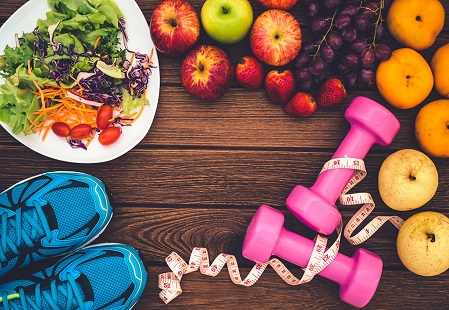Losing weight and maintaining a healthy weight can be a challenge, but it’s an important goal for many people. One key aspect of successful weight loss is following a healthy diet. In this article, we’ll discuss some tips for making healthy food choices that can help you achieve your weight loss goals.
Weight loss can be a complex and often frustrating process, but it is possible to achieve your goals by following a healthy diet. A healthy diet is balanced, varied, and rich in nutrients, and it is an essential component of any weight loss plan. By making healthy choices and paying attention to portion sizes, you can create a diet that supports weight loss and overall health.
First and foremost, it’s important to understand that weight loss isn’t about deprivation or cutting out entire food groups. Rather, it’s about finding a balanced and sustainable way of eating that nourishes your body and supports your overall health. With that in mind, here are some tips for following a healthy diet to support weight loss.
Eat plenty of fruits and vegetables:

Rather than focusing on the number of calories you consume, it is important to focus on the quality of the calories you are eating. These foods are packed with nutrients and are low in calories, making them great choices for weight loss. Aim for at least five servings of fruits and vegetables per day.
Incorporate protein:
Protein helps to keep you feeling full and satisfied, which can be helpful when trying to lose weight. Good sources of protein include lean meats, poultry, fish, beans, and tofu.
Choose healthy fats:

Fats are an important part of a healthy diet, but it’s important to choose healthy fats such as olive oil, avocados, and nuts. These fats can help to keep you feeling full and satisfied, and may also help to improve cholesterol levels.
Limit added sugars and refined grains:
Foods that are high in added sugars and refined grains, such as sugary drinks, cookies, and white bread, are low in nutrients and can contribute to weight gain. Try to limit these foods and opt for more nutrient-dense options instead.
Drink plenty of water:

Water is essential for maintaining good health and can also help to fill you up and keep you hydrated. Aim for at least 8 cups of water per day, and try to avoid sugary drinks like soda and fruit juice.
Don’t skip meals:
Skipping meals can lead to overeating later on and may make it more difficult to stick to your healthy eating plan. Instead, try to eat regular, balanced meals and snacks to keep your energy levels stable and your appetite in check.
Plan ahead:
Planning your meals and snacks can help you stay on track with your healthy eating plan. Consider preparing healthy meals and snacks in advance and bringing them with you when you’re on the go.
Eat mindfully:
Pay attention to what you’re eating and try to avoid distractions like television or smartphones while you eat. Taking the time to focus on your food can help you to eat more slowly and enjoy your meals more, which may help to reduce the risk of overeating.
Don’t get too restrictive:
While it’s important to be mindful of what you eat, it’s also important to allow yourself the occasional treat. Depriving yourself of your favorite foods can lead to feelings of deprivation and may make it more difficult to stick to your healthy eating plan in the long run.
By following these tips and making healthy food choices, you can support your weight loss goals and improve your overall health. Remember, the key to successful weight loss is finding a balanced and sustainable way of eating that nourishes your body and supports your overall health.
Include physical activity:

While diet is an important factor in weight loss, it is also important to include regular physical activity as part of your weight loss plan. Aim for at least 150 minutes of moderate-intensity activity, such as brisk walking, or 75 minutes of vigorous activity, such as running, per week. This can be broken up into shorter sessions throughout the week, and it is important to choose activities that you enjoy to increase the chances that you will stick with them.
Consultation:
It is also important to remember that every individual is unique, and what works for one person may not work for another. It is important to consult with a healthcare professional before starting any weight loss program to ensure that it is safe and appropriate for your specific needs.
Summary:
In summary, a healthy diet is an essential component of a weight loss plan. By controlling portion sizes, choosing nutrient-dense foods, limiting added sugars and unhealthy fats, including physical activity, and staying hydrated, you can create a diet that supports weight loss and overall health. Remember to consult with a healthcare professional before starting any weight loss program, and be patient and consistent with your efforts, as weight loss can take time and requires dedication.
It’s also important to remember that weight loss is not always a linear process, and it can take time and effort to see results. It may be helpful to set small, achievable goals and celebrate your progress along the way.


Post Comments